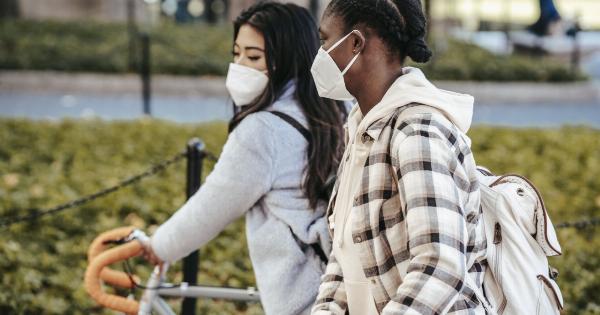Sleep is a fundamental biological process that is essential for overall health and well-being. It plays a vital role in various aspects of our daily lives, including memory consolidation, cognitive function, and immune system modulation.
In recent years, several studies have highlighted the importance of sleep in preventing viral infections. In this article, we will explore the connection between sleep and immunity, the impact of sleep deprivation on viral susceptibility, and practical strategies to improve sleep for enhanced viral protection.
1. The Immune System and Sleep
The immune system is a complex network of cells, tissues, and organs that work together to defend the body against harmful pathogens, including viruses.
Adequate sleep is crucial for maintaining a robust and balanced immune response, as it influences various immune functions.
One of the key mechanisms through which sleep affects immunity is through the production of cytokines. These small proteins play a crucial role in cell signaling and are essential for coordinating immune responses.
Certain cytokines, such as interleukin-1 (IL-1) and tumor necrosis factor-alpha (TNF-alpha), help regulate the body’s inflammatory response. Sleep deprivation or poor sleep quality can disrupt the normal production of these cytokines, leading to an imbalance in the immune system and a reduced ability to fight off viral infections.
2. Sleep Deprivation and Viral Susceptibility
Multiple studies have shown a clear link between inadequate sleep and increased susceptibility to viral infections. Sleep deprivation weakens the immune system, making individuals more susceptible to viral pathogens.
One study published in the Archives of Internal Medicine found that people who slept less than seven hours per night were almost three times more likely to develop a viral respiratory infection compared to those who slept eight hours or more.
Furthermore, sleep deprivation also affects the effectiveness of vaccines. Vaccines work by stimulating the immune system to recognize and combat specific pathogens.
However, research has shown that sleep-deprived individuals may mount a weaker immune response to vaccines, rendering them less effective in preventing viral infections.
3. The Importance of REM Sleep
Rapid Eye Movement (REM) sleep is a crucial stage of the sleep cycle characterized by vivid dreaming and rapid eye movements. It is during REM sleep that the brain consolidates learning and memory and acts as a vital regulator of emotional health.
Additionally, REM sleep has been found to play a significant role in strengthening the immune system.
Studies have shown that REM sleep enhances the production of T-cells, which are essential for recognizing and killing infected cells. Furthermore, REM sleep has been observed to increase the activity of natural killer (NK) cells.
These cells are critical in identifying and eliminating virus-infected cells in the body, providing a line of defense against viral infections.
4. Strategies to Improve Sleep for Enhanced Viral Protection
Given the vital role sleep plays in preventing viral infections, it is essential to prioritize good sleep hygiene. Here are some practical strategies that can help improve sleep quality and enhance viral protection:.
a. Stick to a Consistent Sleep Schedule
Keeping a regular sleep schedule helps regulate your body’s internal clock, enabling you to fall asleep and wake up more easily. Aim to go to bed and wake up at the same time every day, even on weekends.
b. Create a Sleep-Friendly Environment
Your sleep environment should be cool, quiet, and dark to promote optimal sleep. Use blackout curtains, earplugs, or white noise machines if necessary. Invest in a comfortable mattress and pillows that support your body.
c. Establish a Calming Bedtime Routine
Engage in relaxing activities before bed to signal to your body that it’s time to wind down. Avoid stimulating activities or exposure to bright screens, such as smartphones and televisions, in the hour leading up to bedtime.
d. Limit Caffeine and Alcohol Intake
Caffeine is a stimulant that can interfere with sleep, so it’s best to avoid consuming it in the afternoon and evenings.
Similarly, while alcohol may initially make you feel sleepy, it can disrupt the later stages of sleep, leading to poor sleep quality.
e. Promote Physical Activity
Engaging in regular exercise has been linked to better sleep quality. However, avoid vigorous exercise close to bedtime, as it may raise your body temperature and make it harder to fall asleep.
f. Manage Stress Levels
Chronic stress can significantly impact sleep quality. Incorporate stress management techniques like meditation, deep breathing exercises, or engaging in hobbies you enjoy throughout the day to promote relaxation and better sleep.
g. Pay Attention to Your Diet
What you eat can affect your sleep. Avoid heavy meals, spicy foods, and excessive fluid intake before bedtime, as these can cause discomfort and disrupt sleep.
Try incorporating sleep-promoting foods like tryptophan-rich foods (milk, poultry, and bananas) into your evening meals.
h. Seek Professional Help if Needed
If you consistently struggle with sleep issues or suspect you may have a sleep disorder, it is important to consult a healthcare professional.
They can provide guidance, diagnose any underlying conditions, and suggest appropriate treatments, such as cognitive-behavioral therapy for insomnia (CBT-I) or medical interventions if necessary.
i. Avoid Stimulating Activities in Bed
Refrain from stimulating activities such as working, studying, or watching intense television shows in bed. Instead, reserve your bed for sleep and intimacy to strengthen the association between your bed and sleep.
j. Ensure Optimal Comfort
Invest in a comfortable mattress and pillows that provide adequate support for your body. Consider factors such as firmness, material, and personal preferences to find the perfect bedding for a good night’s sleep.































